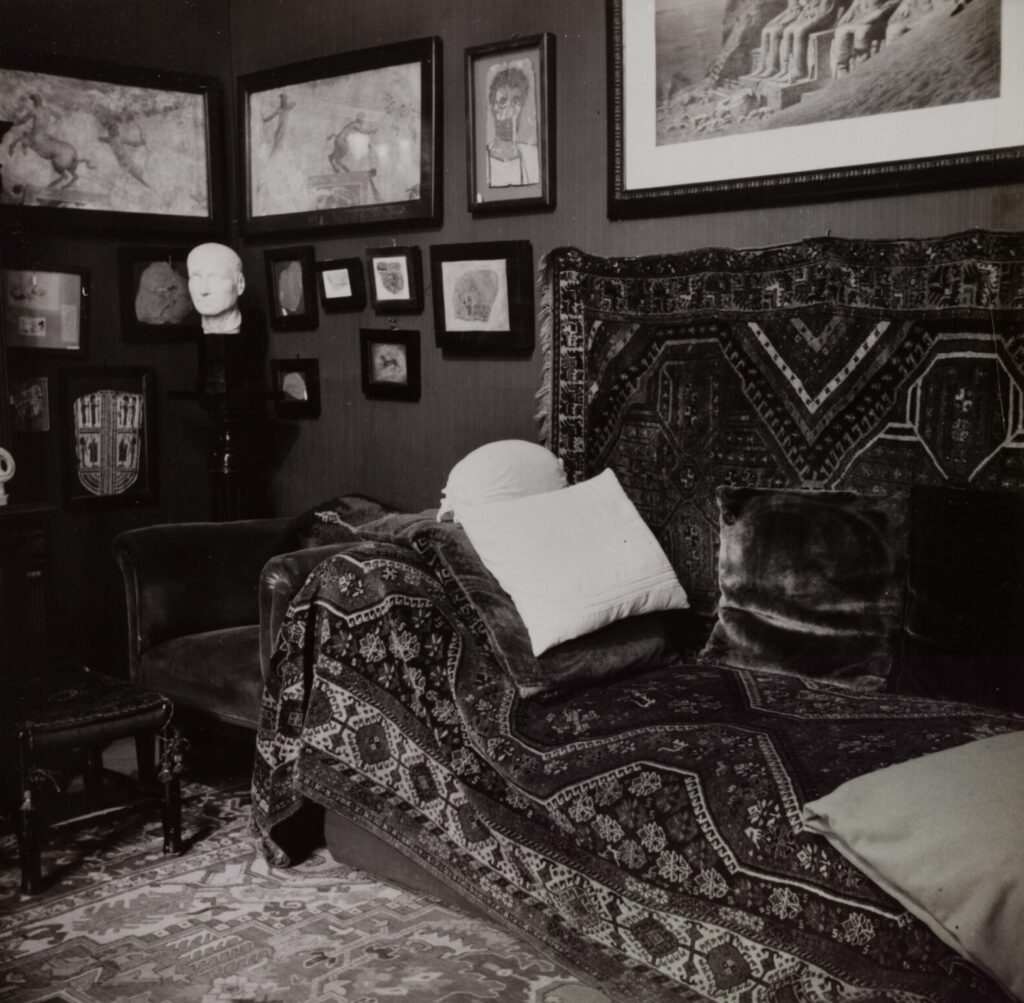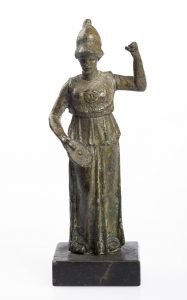
“Essentially, one might say, the cure is effected by love” – Freud in a letter to Jung, 1906
Hilda Doolittle
Hilda Doolittle (1886-1961), known as H.D., was an influential American poet and novelist born in Pennsylvania. Despite her father’s aspirations for her to pursue a scientific career, her attraction to the world of arts, especially literature, prevailed. Her literary journey began at Bryn Mawr College, where she met influential poets like Ezra Pound and William Carlos Williams. Moving to London in 1911, she gained international acclaim as a Imagist group of poets member.
Despite her early success, H.D. experienced tumultuous relationships, personal losses (including the death of her brother, a miscarriage), and trauma during World War I. Her writing was blocked, and she also struggled with her bisexuality. Seeking to overcome these challenges, at the age of 47, she consulted Sigmund Freud in Vienna during the early years of the Nazi regime.
H.D. developed a strong interest in psychoanalysis since the 1910s, engaging with its literature and undergoing brief analysis sessions with Mary Chadwick in London and Hanns Sachs in Berlin.
Analysis with Freud
She undertook two periods of analyses with Freud from March to May 1933 and October to November 1934. The relationship between Freud and H.D. deepened over time, with Freud eventually considering her both a patient and a student, one of the few sensitive enough to comprehend his theories and techniques. Before they met for the first time, Freud had read some of H.D.’s work, like Palimpseste.
Despite Freud’s disapproval of H.D. keeping a diary during their sessions, she maintained one throughout her analysis with him from 1933 to 1934.
H.D. wrote retrospective essays such as ‘Writing on the Wall’ and ‘Advent’, which were later compiled in ‘Tribute to Freud’.

Athena, Roman, 1st or 2nd century AD
The diary serves as a precious testimonial of her transference love during analysis, recounting her experiences with Freud in brief chapters. It employs poetic prose that blends dreams, real events, and imagination, offering insights into the functioning of her unconscious. H.D. referred to her analysis as a relationship in free verses.
This work is considered significant in the psychoanalytic literature, offering an intriguing record of an analysis from the analysand’s perspective.
As an admirer of Greek art, H.D. became fascinated with Freud’s collection, and Freud sometimes used to initiate conversations with his patients about their inner thoughts and feelings. The statue of the Greek goddess Athena, Freud’s favourite, which often adorned his desk, played a significant role in their analytical sessions.
Freud stated that the statue of Athena was “perfect… only she has lost her spear”. This statement indicates Freud’s emphasis on female castration and lack, represented by Athena’s missing spear.
Literary Figure
The relationship between the poet and the psychoanalyst extended beyond the analysis sessions. H.D. never failed to send him gardenias for his birthday. After the analysis concluded, an intense exchange of affectionate letters between them began, lasting until the end of Freud’s life.
In her later years, H.D. explored mysticism and produced poetry, remaining productive, writing, and investigating new themes until she died in 1961.
H.D.’s diverse body of work, including her exploration of Freud and the poem Helen of Egypt, solidified her as a pioneering imagist poet and enduring literary figure.



